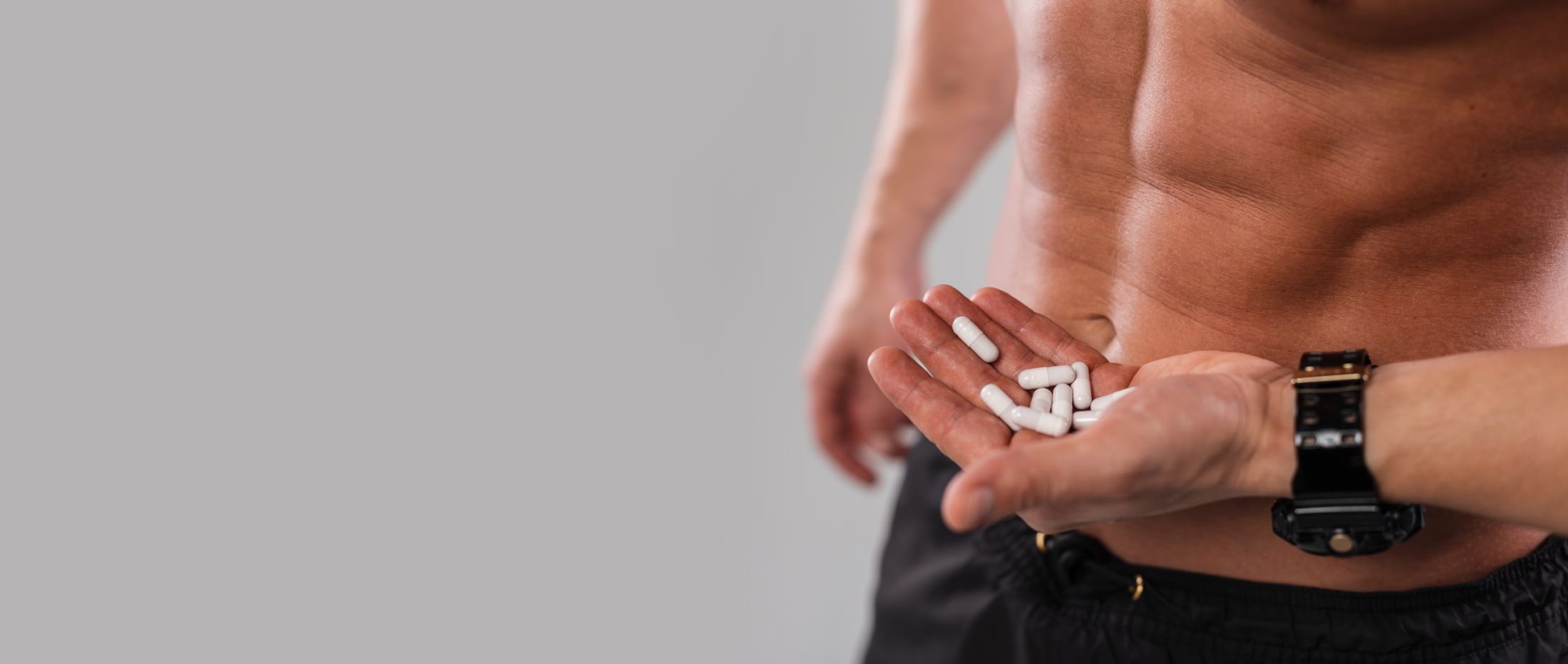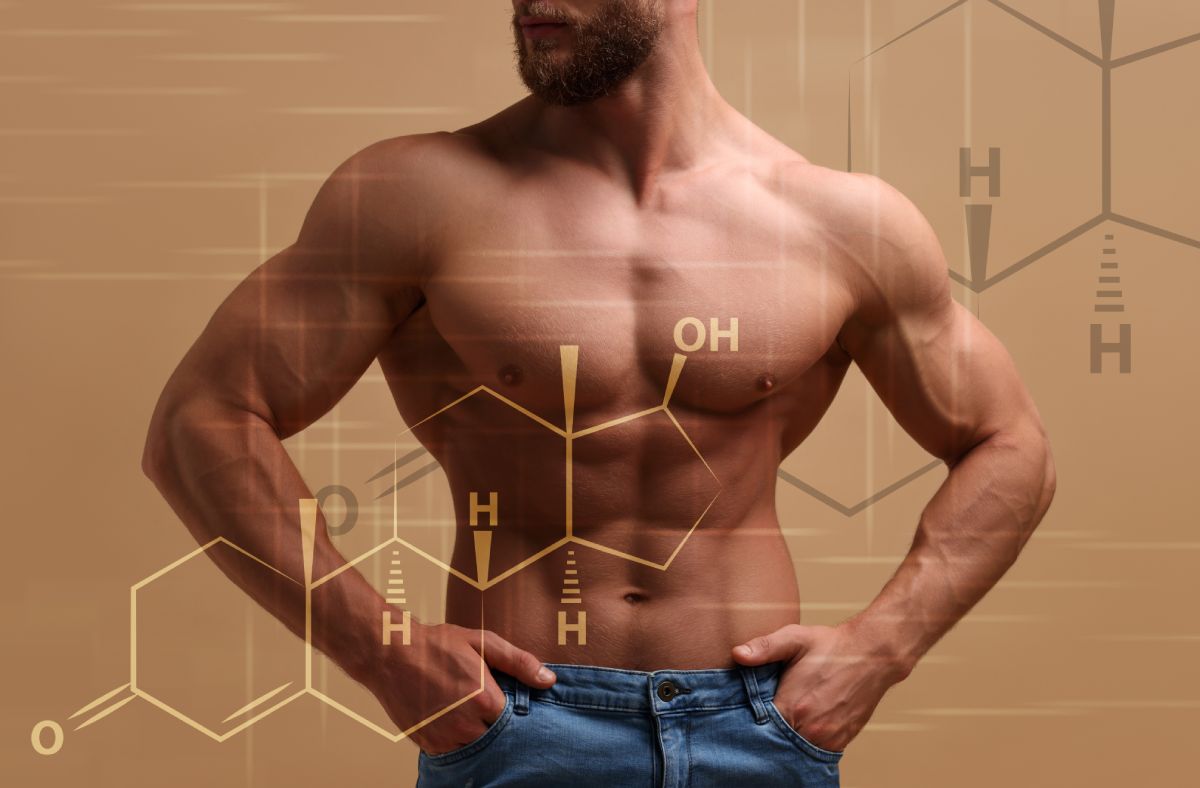There are one in four men in America with low testosterone levels. Testosterone is a hormone that both men and women depend on for growth, energy, libido, and more. In men, testosterone ushers in puberty, the development of sexual organs, bone, and muscle mass.
Testosterone is key to a healthy and balanced life. When there is not enough, it can result in serious issues. Adults depend on testosterone levels for strength training and weight loss diets. Those who are lacking it may come across vitamins for low testosterone treatment.
Before we get into why and how vitamins treat low testosterone, let’s learn more about this hormone. There are a number of factors that contribute to drops in testosterone and the side-effects to watch for.
Why is Testosterone Low?
For those out there that have low testosterone, there are a number of factors to consider. Here are some of the reasons why testosterone can drop:
Stress
The most widely-attributed cause for low testosterone is stress. We’re not just talking short episodes of stress throughout the day. Long-term stress that is ongoing for months or years can effectively change the way your body releases hormones.
Obesity
Excess fat reduces the amount of testosterone and causes high estrogen levels. For morbidly obese patients, testosterone is reduced by as much as half of normal levels. Obesity also causes stress and depression, which further compound the problem.
Lack of Exercise
This can tie into obesity, but even skinny people can experience low testosterone due to a lack of activity. The act of weight-lifting is actually a great way to boost levels of testosterone. Exercises should challenge you and leave the body “spent” after a session.
Insulin Resistance
When the body is producing high levels of C-reactive proteins, this is a sign of two problems. One, you have insulin resistant blood and, two, you are at-risk for low testosterone. These C-reactive proteins cause chronic inflammation, which increases the likelihood of getting diabetes.
Xenoestrogens
Genetically-modified foods contain high levels of xenoestrogens. These synthetic estrogens exist in phthalates, pesticides, and tobacco products. By artificially boosting levels of estrogen levels in men, it reduces testosterone production.
This is also dangerous for women too, as it increases their risks for cancers.
Age
Your testosterone levels start to decline naturally after the age of 30. The rate of decrease is gradual, averaging about 1-2% each year. Men in their senior years will begin to notice the signs of low testosterone levels.
These symptoms include:
- Increased Body Fat
- Fatigue
- Erectile Dysfunction
- Increased Body Fat
- Loss of Hair
- Loss of Muscle Mass
- Depression
Drastic decreases in testosterone mean seeing these symptoms at a much younger age. There may possibly be an underlying condition causing such a dramatic decrease. Heavy drinking, smoking, or medication use could also lead to these symptoms.
You should see your doctor to have a discussion about low testosterone if you experience one or more of these symptoms. Otherwise, you can try using vitamins for low testosterone. There have been many studies that have proven the benefits of taking herbal supplements and targeting micronutrients to increase testosterone production.
Let’s take a look at some well-known candidates.
Vitamins for Low Testosterone
The following vitamins exist in many foods or in any supplement store.
Vitamin D
The body produces vitamin D on its own just from exposure to UV light from the sun. Depending on your skin tone, you need approximately 10-15 minutes of direct sun to get enough vitamin D for the day. This is a real problem for future generations who spend more time inside than ever.
Those with dark skin must get 5-7 times more sun than those with fair skin. The risk of low or deficient levels of vitamin D extends into a wide range of categories. Bone loss, low testosterone, and reduction of sperm quality are just a few results of vitamin D deficiency.
One study of 65-year-olds found that when vitamin D intake doubles, testosterone levels increased by about 20%.
Zinc
Another common nutrient obtained from similar sources, zinc also has ties to testosterone levels. Zinc is an essential mineral that gets used in over 100 enzyme reactions in the body. Zinc is especially effective in those with low sperm count and low testosterone.
Zinc is a popular supplement used by professional athletes, wrestlers, and trainers. It is a necessary catalyst for androstenedione’s conversion into testosterone. ZMA is what athletes call supplementation, this is the combination of zinc, magnesium and vitamin B6.
Zinc helps assist in recovering from high-intensity training exercises, aka HIIT. Zinc’s anti-inflammatory properties help reduce risk factors associated with atherosclerosis. It is essential for maintaining a healthy heart, which in turn improves blood flow and testosterone levels.
B Vitamins
The entire B vitamin complex (B1, B2, B3, B5, B6, B7, B9, and B12) each have a role in testosterone regulation. We don’t always get enough B vitamins in our diets, so it’s important to learn about them. Some B vitamins are easier to find in foods and supplements than others.
There are three major B vitamins that you should know about when it comes to vitamins for low testosterone. B12, B6, and B3 vitamins aren’t common in a lot of foods if you’re not already a health nut. You can get the latter two in most vegetarian diets, but with B12 you’re going to need some help.
Let’s take a closer look at how these three vitamins impact testosterone production.
Vitamin B6
B6 plays a major role in processing the protein, carbs, and fats you eat. B6 is also involved in the autonomic processes of your nervous and immune systems. B6 helps with memory, cognitive functions, energy levels, as well as testosterone production.
As important as vitamin B6 is, your body is unable to store it, so you must receive a daily dose. If you are lacking in B6, you may suffer from nervous disorders, kidney stones, acne, and even early onset memory loss. It is important to increase our intake of vitamin B6 as we get older, especially for testosterone production.
Vitamin B6 influences testosterone production by increased demand for androgens. When the body lacks B6, the brain increases estrogen levels. This vitamin acts as a counterbalance for hormone regulation.
It also happens to increase the serum growth hormone and lower prolactin levels. This means that B6 can reduce the likelihood of developing breasts in men who take HGH supplements. It’s important to keep Vitamin B6 levels high to account for testosterone levels fluctuating throughout the day.
Vitamin B3
The easiest of these three B vitamins to get from a typical diet. Vitamin B3 helps build muscle, reduce fat, and provide energy. You can never have too much B3, and you definitely don’t want to lack B3.
Vitamin B3 helps regulate your cholesterol levels, both good and bad. This indirectly improves your testosterone, which is born out of cholesterol. Without proper B3 levels, the body struggles to convert all those proteins, fats, and carbs into energy.
This is one of those vitamins that we kind of take for granted when we’re healthy and young. As soon as we reach older age, a dip in B3 levels becomes immediately noticeable. One of the biggest inhibitors of B3 absorption is alcohol.
Heavy drinking comes with a host of other problems, including potential B3 deficiency.
Vitamin B12
Lastly, we have vitamin B12, a potent and important nutrient. Those who are deficient in B12 are almost always deficient in other vitamins, including B6. Vegetarians and vegans can’t get B12 from plant sources.
It has to come from supplements or fortified products-soy milk and nutritional yeast are two popular choices. You don’t need a lot of vitamin B12, but if you aren’t getting enough of it, the consequences can be serious.
When your body lacks enough B12, testosterone levels drop significantly. Vitamin B12 also impacts testicular health, sperm quality, and the number of sperm.
Outside of testosterone, high B12 levels result in more energy, more stamina, better digestion, and improved concentration. This is a main ingredient in the popular 5-hour energy shots, along with B6. B12 is also directly tied to overall mood and stress levels.
Other Popular Supplements
These supplements do not fall under the category of typical vitamins that increase testosterone levels. They do help treat symptoms of low-T and are 100% natural.
Arginine (L-arginine)
This amino acid gets manufactured by the body without assistance. It is responsible for blood flow and helps regulate blood pressure. Studies have show that Arginine can affect those with low testosterone by treating erectile dysfunction.
Arginine gets boosted by eating various proteins, including red meat, poultry, dairy, and fish. The recommended amount of arginine is between 400 and 6,000 mg per day. One can safely increase their intake by as much as 5 grams per day in order to treat ED.
Fenugreek
A popular spice used in Indian and Asian dishes, adding a sweet and nutty profile. Fenugreek is processed as a seed, powder, and a thickening agent in soaps and shampoos. In recent years, popularity has grown around Fenugreek’s supplemental properties.
Studies show that it may provide assistance to those with low testosterone. Fenugreek can help inhibit the enzymes that convert testosterone into estrogen. It can also help provide a boost in libido by increasing sexual stimulation.
Tribulus Terrestris
Another supplement sold as an aphrodisiac, Tribulus is another testosterone-booster. This herb grows around the Mediterranean and is used in various traditional medicines, including fertility. Also called the puncture vine, Tribulus Terrestris comes in pill form, an herbal tea, or powder.
Tribulus can increase sperm quantity as well as erectile dysfunction. Tribulus has scientific studies that link it to higher testosterone production. This happens through stimulating the precursors of its conversion, not a direct influence.
That means the body naturally increases testosterone conversion without any potential side effects. Up to 250mg is recommended three times daily for those with low testosterone. We recommend this over one pill for the day to avoid fluctuations in testosterone.
Royal Jelly
This highly-nutritious and powerful supplement comes from honey bees, but it is not honey. It is a special substance that bees make to feed the queen and developing larva. Royal jelly is also an expensive supplement used to treat many illnesses and diseases.
Royal jelly contains chrysin, which acts as an inhibitor towards the conversion of estrogen. Royal jelly also contains all of the following B vitamins:
- Inositol (B8)
- Biotin (B7)
- Pyridoxine (B6)
- Niacin (B3)
- Thiamine (B1)
- Riboflavin (B2)
- Pantothenic acid (B5)
- Folic acid (B9)
A six-month study demonstrated an improvement in red blood cell production, glucose tolerance, and mental health. Taking all of this into account, it’s hard not to recommend royal jelly as a supplement for improving testosterone levels.
Ashwagandha
This anti-anxiety herbal supplement helps reduce stress and improve cardiovascular health. Ashwagandha also improves sperm quality in men, as well as higher testosterone levels. You can find it in various supplements aimed at increasing performance, stamina, and strength.
Its regulation of the stress hormone cortisol can bring levels of libido up and improve symptoms of ED.
Maintaining a Balance of Testosterone
As you can see, there are many natural nutrients and vitamins for low testosterone levels. You don’t have to live with the effects of low testosterone, you can treat it at home. If you are too embarrassed or cannot afford testosterone medication, try these natural supplements first.
Remember, if you are experiencing severe symptoms of low testosterone, tell your doctor. Testosterone plays an important role throughout your body, not just physically. Your mental and emotional well-being depends on a balance of testosterone hormones.
For those looking for a competitive edge, monitor your use of supplements. Gradually increase your intake and maintain a balanced diet. Learn more about planning your goals of increasing testosterone for performance here.





